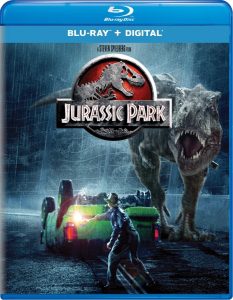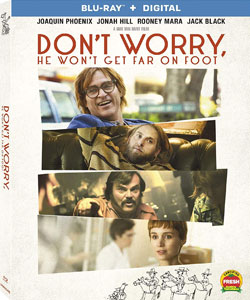Director and co-writer Gus Van Sant channels some of the character- and relationship-building magic of “Good Will Hunting” in “Don’t Worry, He Won’t Get Far on Foot,” which delivers a message that a good life can grow out of horrible circumstances if one works at it. Yet this film – which is still playing in some arthouse theaters — is never preachy.
Despite a soft touch with its theme, this biopic of cartoonist John Callahan – who died in 2010 – also feels like a textbook portrayal of alcoholism and how Alcoholics Anonymous helps many people deal with the disease. Callahan (an award-worthy Joaquin Phoenix, who makes himself into a dead ringer for the handsome quadriplegic) joins a group in the vein of the circle of messed-up folks in the ill-faded Ted Danson sitcom “Help Me Help You.” Led by Jonah Hill’s Donnie, these people seem to hate each other at times, yet it’s clear they are the most important people in each other’s lives.
In no way does “Don’t Worry” glamorize alcoholism, but it is interesting to think that these wonderful relationships grow out of their common disease, and also that in most cases another health problem (mental or physical) is tied to their alcoholism.
The film may not glamorize alcoholism, but scenes of John boozing it up with friends such as Dexter (Jack Black) in the 1970s are admittedly amusing. It seems inappropriate to laugh since we know the accident where Callahan gets paralyzed is looming (don’t worry, the film doesn’t show it, so you don’t have to get flinchy). But it is entertaining to see Black use his comedy skills for a serious film, like when he drunkenly notes that some people say he looks like Burt Reynolds. (His facial hair is the same, but …)
“Don’t Worry” is harrowing when we see the first months of John dealing with his new reality. There’s no doubt a medical reason why he’s strapped tightly into a bed, which is then flipped upside down. Medical students look at him like he’s a scientific subject. This would be over the top, except we know this comes from the real Callahan’s life – with Jack Gibson and William Andrew Eatman co-writing, the film is based on the cartoonist’s autobiography.
And then he and we get a wonderful sliver of light in the form of sundress-wearing Swedish rehab nurse Annu (a never-cuter Rooney Mara), who has a much better bedside manner than Callahan’s regular doctors or future attendant Tim (Tony Greenhand). (The film effectively jumps around in time.) It’s heartwarming to realize Annu genuinely does like Callahan; she’s not humoring him.
Despite being about a cartoonist, “Don’t Worry” doesn’t lean into the comedy – even of the dark variety – as much as, say, “American Splendor.” This film’s main character is not as humorously grumpy, and his problems – like struggling to uncork a bottle that Tim forgot to open for him — aren’t funny; they are cruelly true.

And Callahan isn’t gregarious, but his cartoons are deliciously funny, as seen when we get little peeks at them. They illustrate thoughts and feelings residing just below the surface of people’s minds. He celebrates the absurdity and staginess of the human condition, as with a piece showing an amoeba evolving into a man accepting an award at a podium. Sometimes the cartoons simply celebrate goofiness: The film’s title comes from a piece where cowboys come upon an empty wheelchair in the desert. Callahan earns almost as many enemies as fans.
Van Sant rather briskly gives us John’s career arc, starting with the Portland State University newspaper publishing him. The paper is later concerned that his work is too offensive, which would be a too-on-the-nose jab at the ultra-PC city except that, again, this comes from a true story.
While I wished to get more immersed in Callahan’s work, “Don’t Worry” does achieve a nice balance of dark moments and lovely instances of human beings being decent – such as when skateboarding kids help John after he crashes his wheelchair, or when he enjoys a dance in a park with a wheelchair-bound woman.
Although it’s a bit slow-paced and not the chuckle-fest I might’ve hoped for, “Don’t Worry” achieves something remarkable: It shows a man living a completely fulfilling life after being paralyzed, without coming off as being full of crap.

